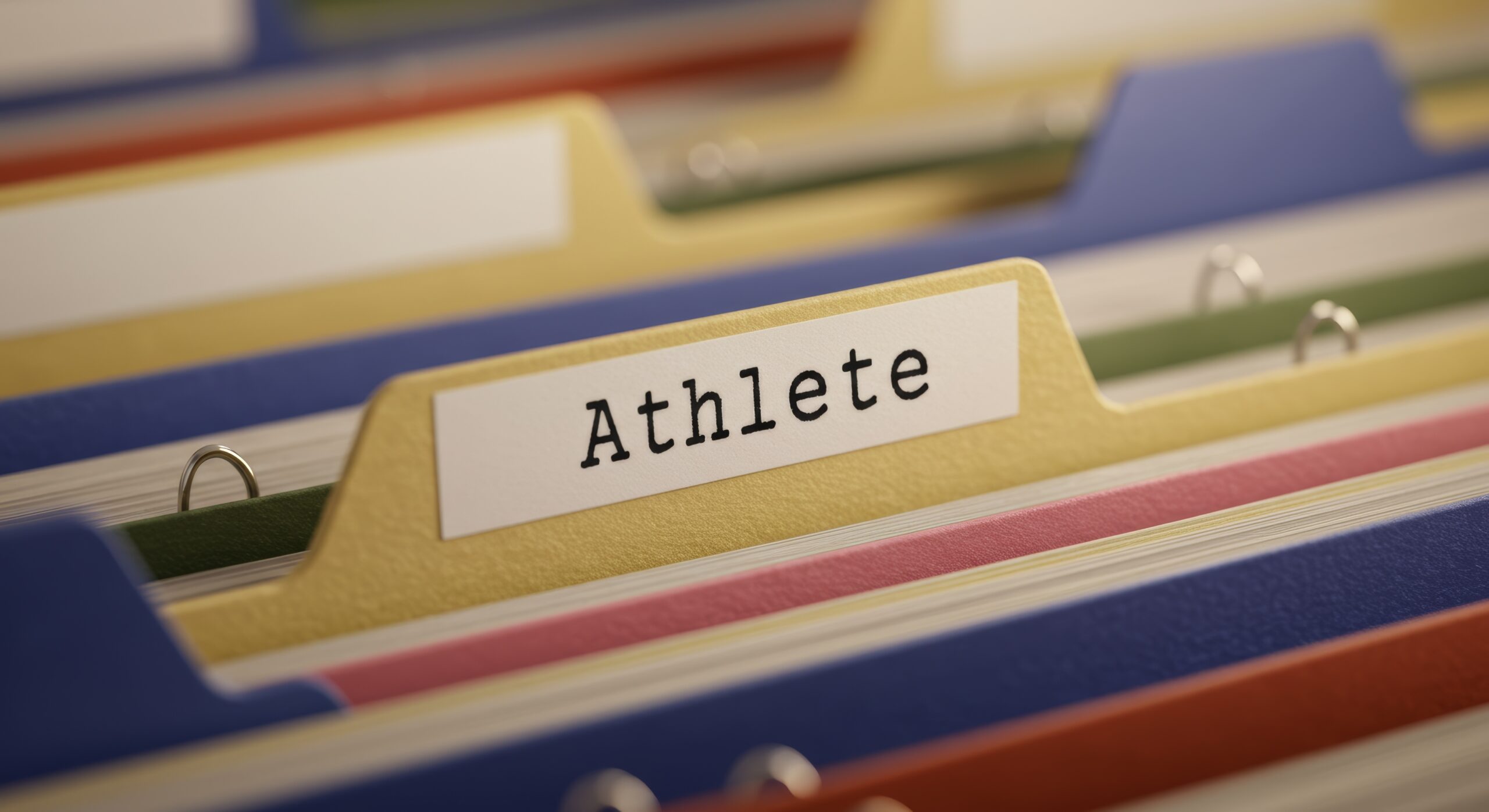High School Athlete NIL Deals: What You Need to Know About Compensation and Taxes
The world of college athletics has transformed dramatically since the NCAA changed its policy in July 2021, allowing student-athletes to profit from their Name, Image, and Likeness (NIL) without risking eligibility. Now, as we move into 2025, this trend has trickled down to high school sports in many states, creating exciting opportunities and new responsibilities, for recruits and their families.
For high school athletes, NIL deals can mean brand endorsements, paid appearances, or monetizing social media platforms long before stepping onto a college campus. While this sounds like a dream come true, NIL compensation also comes with obligations, especially regarding taxes and compliance. Mismanaging these early earnings can lead to financial stress, IRS penalties, or even eligibility concerns down the road.
This guide breaks down what every high school recruit should know about NIL income, tax implications, and compliance, and how PMG PRIVATE NIL supports athletes in navigating this new landscape confidently.
Understanding NIL for High School Athletes in 2025
NIL stands for Name, Image, and Likeness, your personal brand as an athlete. It allows you to earn money by promoting products, creating content, or selling merchandise based on your athletic identity. While college athletes have embraced NIL since 2021, high school NIL rules vary by state. As of 2025:
Over 30 states allow high school athletes to participate in NIL deals without losing eligibility.
Some states require deals to be disclosed to school officials or governing bodies.
Certain states prohibit NIL activity during specific sports seasons or restrict categories of endorsements (e.g., tobacco, alcohol).
Before signing any NIL agreement, check your state association’s policies and NCAA recruiting rules. Mistakes, even unintentional ones, can impact your future eligibility.
Common NIL Opportunities for High School Recruits
NIL gives high school athletes a chance to turn their personal brand into income. From sponsorships to social media and merchandise sales, opportunities are everywhere. Below are some of the most popular ways recruits can start earning NIL income and build their future brand.
Endorsements & Sponsorships
Brands collaborate with athletes to promote products in social media posts, videos, or local events. These deals often include free gear or payment for exposure. Companies value athletes with strong engagement and community presence. Start by reaching out to local businesses before targeting larger brands.Social Media Monetization
Athletes can earn by partnering with brands, posting sponsored content, or joining affiliate programs on platforms like Instagram or TikTok. Ad revenue from YouTube videos is another source. Building a genuine connection with followers is key to success in this space.Merchandising
Creating and selling branded items such as T-shirts or hoodies is a great NIL income option. Digital products like NFTs can also help athletes stand out. This approach works best for athletes with a loyal fan base willing to support their personal brand.Personal Appearances & Autographs
Hosting autograph sessions or attending local sports camps can provide extra income and increase visibility. These events build community connections and strengthen an athlete’s brand. Start small by participating in local school events or youth programs.
Pro Tip: NIL income isn’t just for five-star recruits. Athletes with strong local followings or niche audiences can create meaningful opportunities too.
Why Taxes Matter for NIL Earnings
Taxes are an important part of NIL earnings because the money you make from deals is considered self-employment income. This means no one is withholding taxes for you, so you’re responsible for paying them. Both federal and state taxes may apply, and you might also owe self-employment tax, which covers Social Security and Medicare. Even small NIL deals count as taxable income. If you don’t plan ahead, you could face penalties or unexpected bills later. Keeping good records and setting aside money for taxes can help you stay compliant and manage your NIL income effectively.
How NIL Income is Classified
NIL income is treated as self-employment income, not a regular paycheck. Brands and businesses usually send athletes a Form 1099, which reports how much they were paid. Unlike traditional jobs, there is no automatic tax withholding. This means you must set aside money and pay your federal income tax, state income tax (if your state requires it), and self-employment tax, which includes Social Security and Medicare. Keeping track of every payment is essential. Planning ahead can help you avoid unexpected tax bills and stay compliant. This is why understanding NIL tax rules early is so important.
Federal and State Considerations
Every state has different tax rates, and some have special rules for NIL income. For example, a few states require athletes to report NIL deals to local authorities, while others do not tax NIL income at all. Federal taxes apply everywhere, so athletes must plan for both levels. Knowing your state’s regulations helps you avoid penalties and stay compliant. Check current state laws before signing NIL deals or filing taxes to manage NIL income effectively and protect eligibility.
Record-Keeping Essentials
Keeping accurate records is one of the most important steps for high school athletes earning NIL income. Every payment from brand deals, social media partnerships, or merchandise sales should be logged. Save all invoices, receipts, and signed contracts in a safe place. This helps you track your earnings and understand your taxes later. Organized records make it easier to report NIL income correctly and avoid compliance issues with the NCAA and IRS. Good record-keeping also helps with budgeting and financial planning, so you can see where your money is going and make smart decisions for the future.
Compliance with NCAA and IRS Rules
NIL opportunities are exciting, but they come with important responsibilities. High school athletes must follow both NCAA and IRS rules to protect their eligibility and financial future. Compliance is more than a formality—it’s about staying organized and transparent. From reporting income to meeting state disclosure requirements, every detail matters. Missing a step can lead to penalties or lost opportunities. Understanding what to track and why is the first step toward success. Here’s what you should know about compliance and how to stay on the right path.
What Athletes Need to Track
Contract details: Terms, compensation, and deliverables.
Payments received: Keep accurate records for tax filings.
Disclosure requirements: Some states and schools require deals to be reported.
Risks of Non-Compliance
Failing to report NIL income or structure deals properly can lead to:
IRS penalties for unpaid taxes.
NCAA eligibility issues if rules are violated.
Compliance is complex—especially when you’re balancing academics, athletics, and NIL commitments. That’s why having a trusted advisor matters.

Financial Planning Tips for NIL Income
Managing NIL income wisely can set you up for long-term success. Without a clear plan, earnings can disappear quickly. High school athletes should think beyond short-term spending and focus on building financial habits that last. Here are some simple, practical tips to make the most of your NIL income:
Set Aside Money for Taxes
Every NIL dollar you earn is taxable. Save 25–30% of each payment in a separate account to cover federal and state taxes. This habit prevents surprises during tax season and keeps you compliant with IRS rules, reducing stress and financial penalties later.Consider Entity Setup (LLC or S-Corp)
Creating an LLC or S-Corp separates personal and NIL finances, making accounting easier and possibly reducing taxes. The best structure depends on your earnings and goals. Talk to a tax professional before setting up an entity to make sure it fits your financial situation.Budget and Save for the Future
NIL income isn’t always steady. Building a budget helps you plan for essential expenses and set aside savings. Avoid spending all your earnings on impulse purchases. Start small by saving a percentage of every payment for future needs, such as college or training costs.
How PMG PRIVATE NIL Helps High School Recruits
Navigating NIL as a high school athlete can feel overwhelming. That’s where PMG PRIVATE NIL comes in. We are a specialized division of PMG Private CFO Services, designed exclusively for NCAA student-athletes and high school recruits preparing for the NIL era. Our services include:
Tax Planning and Filing: Avoid surprises at tax time with proactive strategies.
Entity Setup (LLC, S-Corp): Get guidance on the right business structure for your NIL income.
Contract Review and Deal Structuring: Protect your interests and understand every agreement you sign.
NCAA and IRS Compliance Tracking: Stay compliant and protect your eligibility.
Personal Finance Education: Learn how to manage money effectively for long-term success.
Our tax-first approach means we help athletes not just earn money—but keep more of it legally and responsibly, all while focusing on academic and athletic performance.
Ready to Take Charge of Your NIL Journey?
The NIL era has created incredible opportunities for high school athletes—but it also introduces financial and compliance responsibilities that shouldn’t be overlooked. Understanding compensation, taxes, and regulations now can save you from costly mistakes later.
If you’re a high school recruit (or a parent or coach guiding one), the right guidance can make all the difference. PMG PRIVATE NIL specializes in helping athletes plan, protect, and manage NIL income with confidence—from your first deal to your college career and beyond.
Ready to take control of your NIL journey?
📍 PMG PRIVATE NIL
1800 E Las Olas Blvd fl 2,
Fort Lauderdale, FL 33301
📧 info@pmgnil.com
📞 (954) 395-1225




